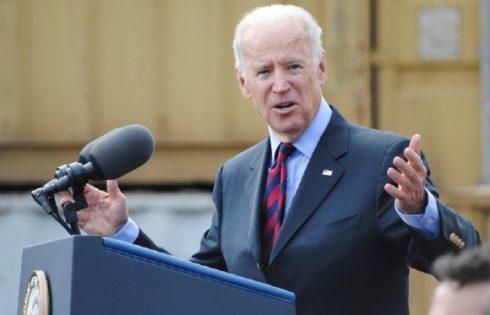With serious conflicts brewing internationally, Monday night’s debate represented an opportunity for both presidential candidates to hash out their differences on Libya, Iran, and a multitude of other foreign policy problems America faces. Instead the third and final presidential debate featured the U.S. economy on center stage once again.
What transpired represented a striking difference from the previous debates, as both Barack Obama and Mitt Romney took on more conciliatory tones and commended each other, at times.
The first debate was characterized by a sleepy and unenthusiastic performance by Mr. Obama. The second featured a tense scuffle over national and international issues. But agreement was the theme Monday night.
Candidates generally agreed on the path ahead for the war in Afghanistan and on the scope of other threats facing the nation. Yet, on the economy, all the agreements came to an end.
Mr. Romney took a swing at Mr. Obama’s economic record. “In order to be able to fulfill our role in the world, America must be strong. America must lead. And for that to happen, we have to strengthen our economy here at home. You can’t have 23 million people struggling to get a job,” he said.
Mr. Obama said he was, “making sure that we’re bringing manufacturing back to our shores so that we’re creating jobs here, as we’ve done with the auto industry… including retraining our workers for the jobs of tomorrow; doing everything we can to control our energy.” The moderator, Bob Scheiffer, even had to remind both men to get back to foreign policy.
Mr. Romney showed poise in an attempt to convince viewers that he is capable of being a strong commander-in-chief and resisted attacking his rival personally. However, Mr. Obama seemed bitter at times and wasted no time by attacking his GOP opponent in his first answer saying that Mr. Romney’s foreign policy was “all over the map.”
Unlike the last debate which had a turbulent exchange over Libya, Mr. Romney did get heated when Mr. Obama took out of context a statement he made saying that Russia was America’s main geopolitical foe. Mr. Romney corrected the misrepresentation saying that there was a difference between “geopolitical” and national security threats.
Beside the turmoil in the Middle East, China and Russia came under criticism from the candidates for their pattern of blocking American diplomatic moves.
Throughout the night it appeared the Romney camp had made a strategic decision to consistently connect America’s foreign policy under President Obama to the struggling situation of the economy at home, hoping that voters would ultimately conclude he was more fit to handle both.
“You can’t have kids coming out of college, half of whom can’t find a job today, or a job that’s commensurate with their college degree,” Mr. Romney declared.
Fix contributor Michael Sorge is a student at SUNY Purchase.
(Image by Jon Satch Satriale / Flickr)
Click here to Like The College Fix on Facebook.





Please join the conversation about our stories on Facebook, Twitter, Instagram, Reddit, MeWe, Rumble, Gab, Minds and Gettr.